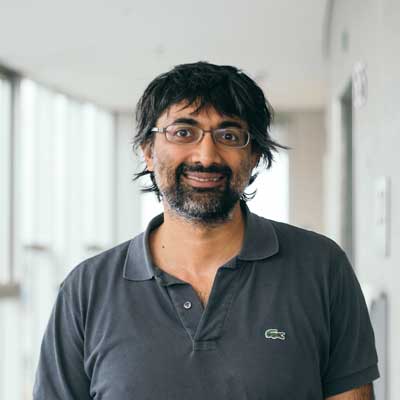Speakers
Dr. Haifeng Chen, NEC Labs America
Dr. Haifeng Chen is heading the Data Science and System Security Department at NEC Laboratories America in Princeton, New Jersey. He received the BEng and MEng degrees in automation from Southeast University China, and the PhD degree in computer engineering from Rutgers University in 2004. He and his team members are working on various topics related to big data analytics, AI, software and system security, smart service and platforms. Dr. Chen has served in the program committee for a number of top AI conferences, and has been in the panel of National Science Foundation (NSF) programs. He is a member of the school of Systems and Enterprises Advisory Board in Stevens Institute of technology, New Jersey. Dr. Chen has co-authored more than a hundred conference/journal publications including the best paper runner-up at SigKDD’16, and has over 70 patents granted. Most of his research led to advanced solutions and products for various industrial domains including power plants, satellite, financial, retail, and so on.
Dr. Jan Gasthaus, Amazon Web Services, AWS AI Labs
Dr. Jan GasthausJan Gasthaus is a Principal Machine Learning Scientist in the Amazon AI Labs, working mainly on time series forecasting, anomaly detection, and large-scale probabilistic machine learning. He is passionate about developing novel machine learning solutions for addressing challenging business problems with scalable machine learning systems, all the way from scientific ideation to productization. Prior to joining Amazon, Jan obtained a BS in Cognitive Science from the University of Osnabrueck, an MS in Intelligent Systems from UCL, and a PhD from the Gatsby Unit, UCL, focusing on Nonparametric Bayesian methods for sequence data.
Dr. Kashif Rasul, Morgan Stanley
Dr. Kashif Rasul is a Research Scientist at Morgan Stanley where he works on deep learning based time-series forecasting problems. He also contributes to open source machine learning software. He studied Mathematics at Monash University in Australia and obtained his PhD from the Free University in Berlin, Germany.
Accepted Papers
* RADNET: Incident Prediction in Spatio-Temporal Road Graph Networks Using Traffic Forecasting Shreshth Tuli, Matthew R. Wilkinson and Chris Kettell.
* Expressing Multivariate Time Series as Graphs with Time Series Attention Transformer William T. Ng, K. Siu, Albert C. Cheung and Michael K. Ng.
* HiMLEdge-An Energy-Aware Optimization Framework for Hierarchical Machine Learning in Wireless Sensor Systems at the Edge Julio Wissing, Stephan Scheele, Aliya Mohammed, Dorothea Kolossa and Ute Schmid.
* LETS-GZSL: A Latent Embedding Model for Time Series Generalized Zero Shot Learning Sathvik Bhaskarpandit,Priyanka Gupta and Manik Gupta.
* Incremental Stock Volume Prediction with Gradient Distillation and Diversified Memory Selection Shicheng Li, Zhiyuan Zhang, Lei Li, Ruihan Bao, Keiko Harimoto and Xu Sun.
* Towards Safe Autonomy in Hybrid Traffic: The Power of Information Sharing in Detecting Abnormal Human Drivers Behaviors Jiangwei Wang, Lili Su, Songyang Han, Dongjin Song and Fei Miao.
* Deep-Learning vs Regression: Prediction of Tourism Flow with Limited Data Julian Lemmel, Zahra Babaiee, Marvin Kleinlehner, Ivan Majic, Philipp Neubauer, Johannes Scholz, Radu Grosu and Sophie A. (Gruenbacher) Neubauer.
* DTG-LSTM: A Delaunay Triangulation Graph for Human Trajectory Prediction in Crowd Scenes Zhimiao Shi and Yao Xiao.
* A Wavelet Decomposition based Ensemble Learning Framework for Short-Term Stock Prediction Hieu Nguyen, Jihye Moon, Dongjin Song and Joseph Johnson.




 (1).jpg)


